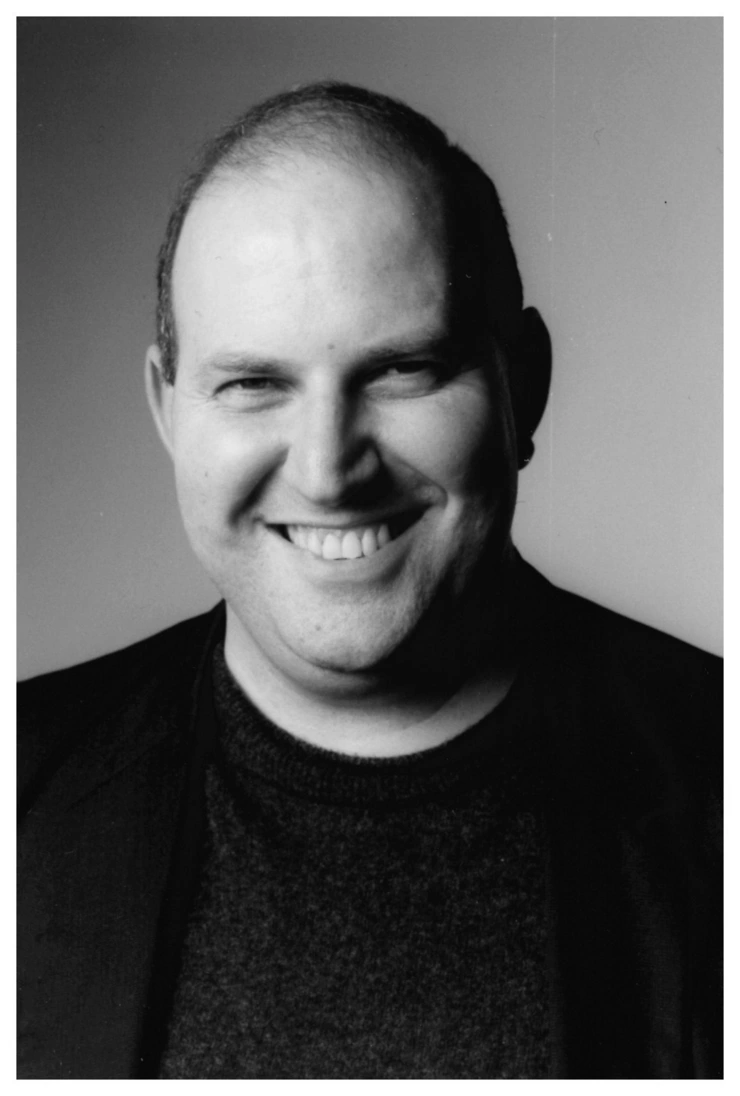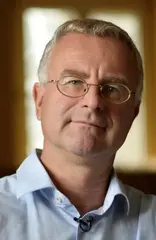In summer 2024, the IFhM took over Klein's estate from his widow. It mainly consists of working material and a collection of film journalism from the 1950s onwards. In order to give the public an initial insight into the extensive collection, the research centre has now designed a small exhibition that includes original manuscripts and printed documents, but above all posters, poster photos and press material from Gad Klein's collection.
Gad Klein – A life for film
"With Gad Klein's estate, the research centre is closing a gap in its holdings on the film history of the late 20th century, which was previously dominated by the advertising materials of the Progress film distributor from the former GDR," explains Professor Patrick Rössler, co-director of the IFhM. "The material from West German origin now allows us to analyse film production in both German states in comparison."
Born in Petach Tikvah, Israel, in 1954, Gad Klein lived in Hamburg until his death. He gained a nationwide reputation, particularly in the 1980s and 1990s. After studying Philosophy and Literary Studies at the University of Hamburg, he wrote for "Spiegel", "Stern", "Tempo", "Sounds", "Szene", "Cinema" and various daily newspapers, among others. From 1990, he worked as an editor for "TV Spielfilm". His highly acclaimed reviews and assessments of globally marketed Hollywood blockbusters and European arthouse films became opinion-forming and trend-setting, as did his analyses of radical independent films from national and international productions. Equipped with an encyclopaedic knowledge of film history, the productions of the major film studios in Hollywood, but also those of the European art film studios, he never avoided a debate. On the contrary, he usually set them in motion. Analysing and interpreting a film, whatever the genre, was an essential matter for him.
Gad Klein also made an impression with his personality, which was reflected in his collaboration with the filmmaker Niklaus Schilling, among others. He appeared as an actor in five cinema films, for example under the direction of Monika Treut or Elfi Mikesch. He was also a passionate collector of film literature, film photographs and film advertising material – including extensive series of the US standard works "Film Daily Yearbook" and "Motion Picture Almanach". His knowledge of film was not only complemented by his broad-based collections, he also made reproductions of important motifs available to interested parties in the editorial offices of German media.
Contact with Gad Klein's widow made it possible for the University of Erfurt to transfer the majority of the collections he left behind and his working archive to the University Library and the Interdisciplinary Research Centre for Historical Media as a donation for teaching and research purposes in 2024. A significant part of the archive was lost forever in the early 2010s due to flood damage in the satellite camp in Wandsbek-Marienthal. However, the surviving documents still make it possible to reconstruct the working methods of a film journalist in an era that was not yet characterised by digital processes and in which information, images and clips were not always available.
For example, the audio recorder handed over helps to reconstruct the interviews with directors, producers and actors via audio cassettes, and a selected interview transcript as a typescript can be compared with the subsequently published text. Further typescripts provide detailed information about the time-consuming preparation for texts to be published in those years. Cards with accreditations at important festivals (e.g. Berlinale, Munich Film Festival, Hamburg Film Festival) illustrate the importance of attending events at the time, and collections of material, for example on the German cinema release of "Aliens – Die Rückkehr", a blockbuster directed by James Cameron (1986), trace the contemporary discussions ("Frau Rambo"). To this day, discussions such as in the radio feature "Als der Sex noch Bomben hatte" (When sex still had bombs) (broadcast recording, SWR 1993), which addresses the role of female leading actresses in the film industry of the 1950s and can be re-read today in research and teaching under the impression of current developments such as the #metoo debate, are stimulating.
The exhibition can be viewed during the opening hours of the Erfurt University Library.
The exhibition will be opened on Monday, 9 December at 6 p.m. in the presence of Gad Klein's widow, Franziska Gerstmeir, as part of a lecture in the Bachelor's programme in Communication Studies in lecture hall 2 of the Centre for Communication and Information (KIZ). After introductory words, the exhibition will be viewed together.


